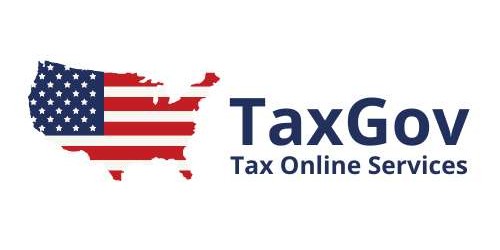Understanding the Basics of ITIN for German Citizens
Understanding the Basics of ITIN for German Citizens involves recognizing the importance of the Individual Taxpayer Identification Number (ITIN) for those living abroad. For German citizens engaging in activities that necessitate tax reporting in the United States, obtaining an ITIN is crucial. The ITIN is a tax processing number, issued by the IRS, primarily for those who are not eligible to obtain a Social Security Number. German citizens who need to file tax returns, receive tax refunds, or comply with the U.S. tax system will find the ITIN indispensable.
This number does not grant you the right to work in the U.S., nor does it provide eligibility for Social Security benefits, but it is necessary for meeting legal and tax obligations while in the U.S. Whether you own property, earn income, or are involved in other taxable activities in America, understanding the role and acquisition of ITIN is an essential part of ensuring compliance with U.S. tax laws.
Eligibility Criteria for German Citizens Applying for an ITIN
Eligibility Criteria for German Citizens Applying for an ITIN can seem complex at first, but a closer look simplifies the process significantly. German citizens who are not eligible for a Social Security Number but need to process tax-related activities in the U.S. must pursue an ITIN. This includes individuals who derive taxable income from U.S. sources, have reporting responsibilities under the Internal Revenue Code, or require an ITIN to comply with U.S. tax laws, such as claiming tax treaty benefits. To qualify, German citizens need documentation proving their foreign status and identity, like a passport or other official identification certified by an issuing agency.
Ensuring all required documentation is correct and complete is crucial, as any oversights can lead to processing delays. Understanding these requirements is vital before proceeding with the application to avoid complications and ensure swift acquisition of the ITIN needed for adhering to the U.S. taxation guidelines.
Need help getting your ITIN?
We can help you apply for your ITIN quickly and easily. Let our team handle the process for you.
The Step-by-Step ITIN Application Process for Germans
The Step-by-Step ITIN Application Process for Germans starts with gathering necessary documents and completing IRS Form W-7. As a German citizen, this process involves multiple steps that must be done accurately to avoid any issues. It begins with filling out the Form W-7, which is the official application for the ITIN. Alongside the application form, you must provide identity documentation, such as a valid passport or equivalent document, and any other documentation required by your specific tax situation.
Once the application and all documents are ready, you can submit them by mail to the IRS or in person at designated IRS Taxpayer Assistance Centers. Also, certified acceptance agents can assist with the application in Germany or the U.S., which can be beneficial for those unfamiliar with the process. The application review typically takes up to 7 weeks; ensuring all information is correct and submitted timely helps in avoiding delays in acquiring your ITIN.
Understanding ITIN Implications for Dual Citizens
Understanding ITIN Implications for Dual Citizens can be essential for German citizens holding dual nationality who require ITINs. Dual citizens involved in international ventures often must navigate tax obligations in multiple jurisdictions, which complicates financial and compliance aspects further. The ITIN becomes pivotal in reporting U.S.-sourced income accurately while adhering to German tax laws under treaties or agreements.
Managing dual citizenship tax obligations requires understanding treaty benefits regarding taxation. It’s essential to know how ITIN interacts with U.S.-Germany tax treaties that can affect dual citizens differently, potentially impacting double taxation situations. Having a tax advisor familiar with both U.S. and German tax regulations can be beneficial in effectively managing your tax obligations as a dual national, ensuring compliance in both countries while optimizing tax benefits provided under international agreements.
Common Challenges in Obtaining an ITIN and How to Overcome Them
Common Challenges in Obtaining an ITIN and How to Overcome Them include navigating the paperwork, understanding complex tax requirements, and dealing with the processing time. Language barriers and unfamiliarity with the U.S. tax system often present initial hurdles for German citizens. Additionally, ensuring documentation is authentic, complete, and correctly submitted is crucial, as any discrepancies can result in application rejections or delays. Some applicants find difficulty in knowing when and where to submit their forms or understanding specific IRS feedback due to differences in tax systems.
To overcome these challenges, it’s advisable to use the resources available through certified acceptance agents or consultants familiar with cross-border tax obligations. By taking advantage of expert guidance and ensuring all documents are properly certified and translated (when necessary), German citizens can significantly streamline the acquisition process of an ITIN, thus avoiding common pitfalls and efficiently managing their U.S. tax duties.
The Role of Consulates and Assistance in ITIN Application
The Role of Consulates and Assistance in ITIN Application is significant, especially for German citizens applying from abroad. The German consulate, while unable to issue ITINs, can provide valuable resources or references for obtaining necessary authentic documents needed for the application. They may also guide you towards certified acceptance agents or tax professionals who are knowledgeable in this process.
Acceptance agents are crucial as they verify your documents and facilitate submissions, ensuring trends and changes in policy or process don’t hinder your application efforts. Additionally, consulate websites often have updated guidelines and links to resources relevant to filing taxes and fulfilling international obligations, which can be invaluable for ensuring your documents and procedures align with current IRS requirements.
Ensuring ITIN Renewal and Maintaining Compliance
Ensuring ITIN Renewal and Maintaining Compliance as a German citizen engaged in the U.S. tax system is vital to avoid penalties or disruptions in tax processing. An ITIN does not expire if consistently used on a federal tax return. However, if it hasn’t been used for three consecutive years, it must be renewed. This renewal process is straightforward if the expiration occurs. Submitting another Form W-7 with current identification documents suffices for renewal. Ensuring compliance involves staying informed about the latest IRS regulations and requirements. Submitting tax returns on time and accurately, and using your ITIN for all related tax purposes is crucial.
Keep in mind that any change in your personal circumstances, such as changes in your residency or tax status, might require updates or amendments to your ITIN-associated data. Staying proactive about renewals and compliance helps avoid unnecessary stress and ensures smooth interactions with the U.S. tax system for German citizens.
Need help getting your ITIN?
We can help you apply for your ITIN quickly and easily. Let our team handle the process for you.
Tax Considerations for German Citizens with an ITIN
Tax Considerations for German Citizens with an ITIN involve understanding both U.S. and German tax obligations. Holding an ITIN as a German citizen requires ongoing awareness of how U.S. tax regulations integrate with those of Germany. Participating in global business ventures, holding assets in the U.S., or earning from activities within U.S. jurisdictions implies that tax declarations need to reflect this adequately to avoid penalties. The dual tax treaty between Germany and the U.S. helps alleviate the burden of double taxation but consultative support from a tax advisor is often necessary to manage complexities.
Ensuring proper utilization of ITINs, accurately claiming deductions, and maintaining honest disclosures on both fronts demonstrate compliance and optimize available treaty benefits. Challenges such as currency conversion, reporting requirements, and meeting all tax filing deadlines underscore the importance of understanding and leveraging the right expertise in managing taxes across borders effectively.


